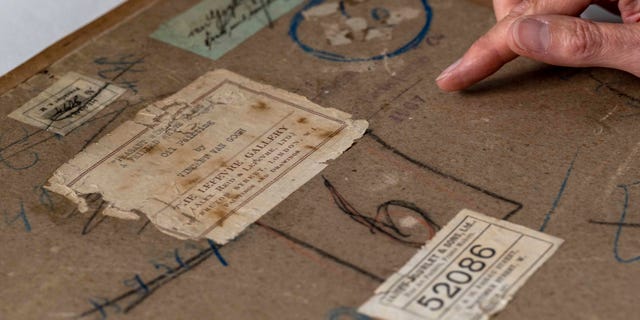Gallery discovers Van Gogh self-portrait behind other painting
Experts at the National Galleries of Scotland in Edinburgh discovered a self-portrait of Vincent Van Gogh they had previously been unaware of, on the back of another painting they had been inspecting.
The unknown work had been situated behind “Head of a Peasant Woman,” which the artist painted during the winter of 1884-5. Experts recognized the newly found work as being a likeness of Van Gogh. While they are unsure as to when it was painted, they noticed that the self-portrait showed Van Gogh with both ears – the artist cut off his own left ear in 1888.
“Moments like this are incredibly rare,” said National Galleries of Scotland senior curator Frances Fowle. “We have discovered an unknown work by Vincent Van Gogh, one of the most important and popular artists in the world.”
Fowle said it was “thrilling” to find such a discovery.
WHO WAS THE MONA LISA IN REAL LIFE? STORY BEHIND LEONARDO DA VINCI’S FAMOUS PAINTING
Experts found the self-portrait when they used an x-ray of the canvas of “Head of a Peasant Woman” before it was to be included in an exhibition. They believe it had been covered by glue and cardboard for more than a hundred years since it was framed early in the 20th century.
WHY IS PABLO PICASSO SO FAMOUS? A LOOK AT THE 20TH CENTURY’S MOST INFLUENTIAL PAINTER
It was common for Van Gogh to reuse canvasses by turning them around and painting on the other side as a way to cut costs.

The key now is for experts to remove the cardboard and glue to preserve the self-portrait without damaging “Head of a Peasant Woman.”
Visitors will be able to see an x-ray image of the self-portrait at the exhibit, “A Taste for Impressionism,” at Edinburgh’s Royal Scottish Academy from July 30 to November 13.
The Associated Press contributed to this report.
Read the full article Here


